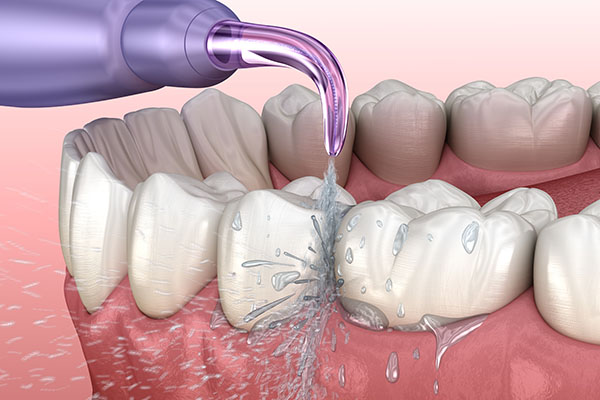 Many people question the importance and effectiveness of a routine dental cleaning. To help you understand this preventive treatment, this article covers answers to commonly asked questions about dental cleanings.
Many people question the importance and effectiveness of a routine dental cleaning. To help you understand this preventive treatment, this article covers answers to commonly asked questions about dental cleanings.
What happens during a dental cleaning?
Patients should get clean teeth and fresh breath after the dental cleaning. Cleanings are normally painless and take less than 45 minutes. The dentist will scrub plaque off the teeth and clean and polish the teeth to eliminate bacteria biofilm.
The dentist will brush the patient's teeth after scaling away the plaque. However, it is different from the brushing done at home. They take the same caution and consideration in this step as they do with scaling. They will floss the teeth after brushing to ensure that nothing is left behind. After that, they will most likely apply fluoride to the teeth to prevent cavities.
How frequently should I undergo professional dental cleaning?
According to the American Dental Association, both children and adults should get a professional teeth cleaning and exam biannually. Patients with a history of recurring oral disease or disorder typically need more regular cleanings. Routine dental visits, particularly dental cleanings, help prevent plaque accumulation and make each cleaning simpler with each visit.
What are the best ways to maintain oral hygiene at home?
Patients should brush every morning and before going to bed or after every meal. Regular flossing and rinsing with an antibacterial mouthwash are also recommended. This will help maintain oral health between dental cleanings. Replace the toothbrush every two to three months, and avoid hard-bristled toothbrushes, which can exacerbate tooth irritation and cause bleeding gums. Contact the dentist if pain or something out of the ordinary occurs. Waiting can worsen the problem, and early care is often quicker, less invasive, and less costly.
What are the benefits of a dental cleaning?
Dental cleanings ensure that the teeth and gums are clean and free of oral health issues. Patients can also ultimately save money on potential dental treatments. Untreated gum disease, for example, may necessitate deep cleaning (scaling and root planing), gum grafting, or teeth replacement.
What are the consequences of poor oral hygiene?
Bacteria thrive in the human mouth. Some bacteria are good for oral health, while others are bad. As toxic bacteria build up on the teeth, they produce acids that erode dental enamel and inflame the gums, resulting in tooth decay, periodontal disease, tooth discoloration, and tooth loss. Other oral diseases can emerge due to these conditions. Maintaining proper oral health entails practicing excellent oral hygiene at home and getting regular dental cleanings.
In conclusion
Regular dental cleanings are essential preventive care measures. The dentist can detect developing issues and treat them before they worsen. The procedure is also easier over time because the dentist will have fewer issues to deal with during the appointment. If you have additional questions about dental cleaning or related procedures, you can contact the dental office to schedule a consultation with the dentist.
Request an appointment or call Dr. Harneet Kaur DDS at 805-205-9298 for an appointment in our Paso Robles office.
Related Posts
Dentists perform dental cleaning to prevent problems like tooth decay and gum disease. A dental cleaning procedure is more intensive than your daily oral hygiene routine.Read on to find out why aftercare is necessary after a dental cleaning. The following also explains how to care for your teeth after professional teeth cleaning.Dentists advise their patients…
Getting professional dental cleaning is recommended to protect the teeth from cavities, gum disease, and other issues. Read on to learn more about the importance of dental cleanings. Almost everyone knows brushing their teeth is important for reducing the likelihood of oral issues. However, following these routines alone is not sufficient to protect your oral…
A dental cleaning is a common dental procedure that is primarily performed for preventive purposes. This means it is not generally used to treat more complex oral health concerns but instead is used to prevent oral health concerns from developing in the first place. However, there are some minor oral health concerns that dental cleanings…
